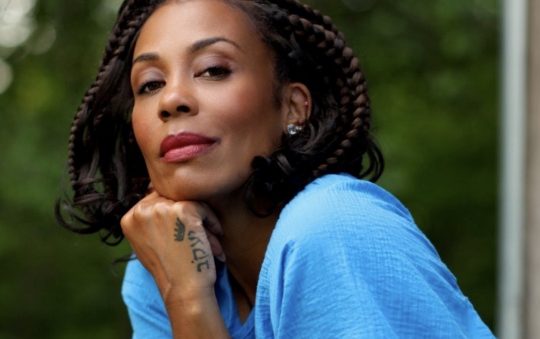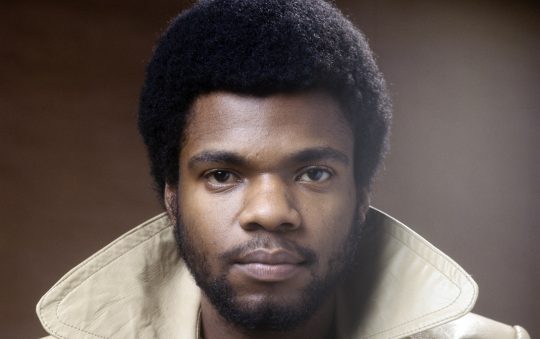
It is our duty to make sure that our “his-story” is preserved and shared—in everything we do as a community. So the new documentary “Number One on the Call Sheet” is an important piece of film and, in my humble opinion, necessary viewing.
Here’s why. In the last decade, a steady stream of documentaries has revisited the long, winding story of African American Hollywood—sometimes celebratory, sometimes instructive, often both. From “They’ve Gotta Have Us” (2020) to Elvis Mitchell’s meticulous “Is That Black Enough for You?!?” (2022), audiences have shown an unrelenting appetite for these cultural deep dives. That enthusiasm makes sense. The contributions of African American artists to film and television are monumental, and the desire to see that legacy properly honored remains strong.
The latest entry into this growing canon is “Number One on the Call Sheet,” a two-part Apple TV+ documentary event. The project is divided into two films—“Black Leading Men in Hollywood,” directed by Reginald Hudlin and produced by Jamie Foxx and Kevin Hart, and “Black Leading Women in Hollywood,” directed by Shola Lynch, with executive producers Angela Bassett, Whoopi Goldberg, Viola Davis, and Halle Berry. All of them appear in the film, alongside a constellation of more than two dozen African American A-listers.

From the outset, the project promises both star power and insight. And to some extent, it delivers. Tracing the trajectory of African American stardom across decades—from Blaxploitation to ’90s romantic comedies and into the current era of superheroes and prestige dramas—the documentary offers a greatest-hits timeline of triumphs in African American cinema. The films honor icons like Sidney Poitier, Harry Belafonte, Hattie McDaniel, Halle Berry, Eddie Murphy, and Whoopi Goldberg, placing their careers in conversation with a newer generation of stars: Denzel Washington, Will Smith, Viola Davis, Michael B. Jordan, Daniel Kaluuya, and more.
The archival footage is rich. The interviews are candid. And the reverence is well-earned.
But for a project with such a loaded title, “Number One on the Call Sheet” only occasionally leans into its most promising thematic territory: what it really means to be an African American actor or actress occupying the top spot in an industry that wasn’t built for you. The phrase itself—long associated with Hollywood’s most bankable stars—carries a specific weight. But in this documentary, it’s treated more like a prompt than a framework.
Alfre Woodard, in one of the film’s sharper moments, says it plainly: “A whole lot of the dominant culture arrives as No. 1 on the call sheet. But we [African American women] seldom do.” The remark lingers. But the documentary doesn’t stay with it long enough to give it full shape.
To be fair, Part 1 makes an early attempt to define the phrase, as Foxx, Smith, Elba, Kaluuya, and others reflect on its meaning. “It’s a magic moment for most actors,” Idris Elba says. Ice Cube compares it to hitting the lottery. Washington, in contrast, shrugs off the vanity of it—recalling that he wasn’t even the top earner on “Carbon Copy,” despite being listed first.
This tension—between symbolic visibility and real power—flashes throughout the film.
Taraji P. Henson, speaking tearfully about pay inequality during press for “The Color Purple,” offers one of the few jolts of raw honesty about how hard-won these roles remain, even at the highest level.
It’s in these quieter, more introspective stretches that “Number One on the Call Sheet” finds its footing. Halle Berry, still the only African American woman to win the Oscar for Best Actress, delivers a gut punch of reflection: “Did it matter? Did it change anything for women of color, for my sisters, for our journey?” The film cuts from her remarks to the 2021 Oscars, where both Viola Davis and Andra Day were up for Best Actress—only the second time in history that two African American women were nominated in the same year—and both lost.
These juxtapositions are powerful, if fleeting. Archival images of past nominees—Dorothy Dandridge, Diana Ross, Cicely Tyson, Diahann Carroll, Angela Bassett, Gabourey Sidibe—remind us that African American excellence has long existed. But recognition has remained elusive.
Part 2 comes closest to delivering the kind of depth the title implies. Don Cheadle notes that being number one is about more than lines or screen time: it’s about setting the tone for everyone else. Ruth Negga adds, tearfully, “You’re always aware, as a woman and as a woman of color, it’s not just about you… there’s a generational thing happening here.”
That’s the heart of the story. And the documentary finds it—just not consistently.
Ultimately, “Number One on the Call Sheet” plays it safe. It’s a celebration more than a reckoning. A retrospective more than an interrogation. And while that might make for an enjoyable watch, it leaves behind an untapped opportunity. The title invites a deeper, more pointed conversation about power, visibility, and what it really means to lead in an industry still grappling with representation.
The film reminds us just how far African American Hollywood has come—hard-earned, inch by inch—and yet, it’s still nowhere near the level of opportunity or recognition that White counterparts receive. Once again, the award for mediocrity is on full display. The Hollywood model is beyond broken. It continues to treat our communities—including Latinos, South Asians, Asians, and others—with such blatant disregard, it’s hard to even talk about. Because it’s right there. In your face. And perhaps the most disheartening part? It’s still happening in 2025, with no sign—none—of real change. Period.
“Number One on the Call Sheet” is now streaming on Apple TV+.






